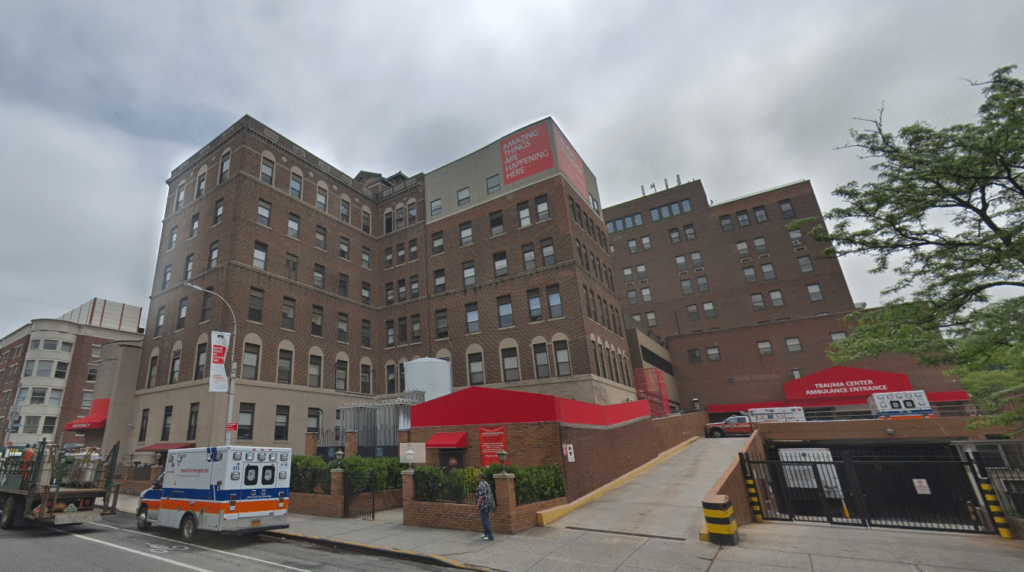NYC Nurses Vote To Ratify Contract For Increased Pay, Safe Staffing Ratios

A majority of union nurses that work at NewYork-Presbyterian hospitals voted Thursday to ratify a four-year contract with the hospital that includes the establishment of minimum staffing ratios among other provisions, according to a Facebook post from the New York State Nurses Association (NYSNA). About 91 percent of the nurses at the hospital voted to ratify the contract agreement, according to the post. NYSNA members and representatives from some of the state’s largest hospitals reached the tentative contract agreement last Tuesday, ending a months-long feud and preventing a major nurse strike. The four-year contract includes a $100 million agreement to hire nearly 1,000 additional staff members at New York-Presbyterian Hospital, Montefiore, and Mount Sinai hospitals, a minimum wage increase of three percent annually and an extended window for nurse retiree health benefits. The provision of the contract praised the most by supporters on social media—and that was often the source of escalating tension between union members and the hospitals—was the agreement to create unit-specific staffing grids that would establish minimum nurse-to-patient ratios. This is the first time minimum staffing levels have been “spelled out in the contract with a meaningful enforcement mechanism,” according to a press release from NYSNA. Once both parties agree on the minimum staffing levels, a third-party arbitrator will be responsible for enforcing those levels and changing them based on patient census and acuity changes, according to the contract. Anthony Ciampa, first vice president of the New York State Nurses Association told the New York Times this agreement marks a groundbreaking achievement in addressing staffing issues statewide. “This is going to have a very positive impact, and it will be the trendsetter of the industry,” Ciampa told New York Times. “What we decide in these major city hospitals tends to set the framework for other hospitals.” Details of the full agreement can be view below:
New York, Rhode Island Nursing Unions Vote To Authorize Strikes

Members of registered nurse unions in New York and Rhode Island have both voted to allow union representatives to issue 10-day strike notices if necessary, according to recent reports. United Nurses & Allied Professionals (UNAP) members in Rhode Island voted Wednesday to authorize a strike notice for Fatima Hospital, located in northern Providence. Workers want to bring attention to what they claim is a lack of commitment to patient and worker safety under Prospect CharterCARE, according to a WPRI report. Fatima Hospital is an affiliate of Prospect CharterCARE. “We don’t take this step lightly and we realize what’s at stake for each other, our patients and the community we are proudly a part of,” Cindy Fenchel, president of UNAP Local 5110 said to WPRI. “It’s time for Prospect CharterCARE to come to the table and make substantive commitments on improving patient care and strengthening worker safety.” In New York, more than 8,000 members of the New York State Nurses Association (NYSNA) voted to authorize a 10-day strike notice amid ongoing contract negotiations with New York City Hospital Alliance, according to a recent blog post. The collective bargaining agreement between the two organizations ended on December 31. NewYork-Presbyterian Hospital, Montefiore, Mt. Sinai, Mt. Sinai West, and St. Luke’s hospitals are involved in the negotiations, and a potential strike could affect an estimated 10,000 nurses at those facilities. Nurses held open protests against the 13 facilities in February over what they claim are unsafe working conditions and inadequate staffing levels. New York City Hospital Alliance disputes these claims and said NYSNA has not provided a “single shred of evidence” to support this claim, according to a CBS WLNY report. “We have remained committed to bargaining in good faith and have put forward a significant proposal that demonstrates the value we place on our nurses, who are the best in the business and should be rewarded for their essential role in the delivery of excellent care,” Farrell Sklerov, a spokesperson for the Hospital Alliance told WLNY.
